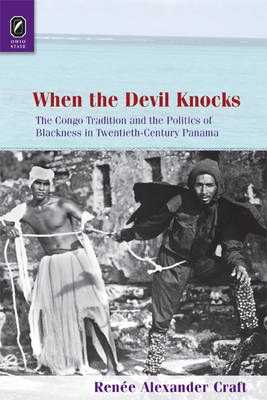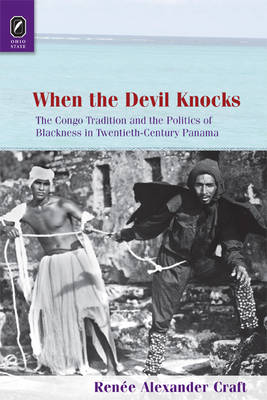
- Afhalen na 1 uur in een winkel met voorraad
- Gratis thuislevering in België vanaf € 30
- Ruim aanbod met 7 miljoen producten
- Afhalen na 1 uur in een winkel met voorraad
- Gratis thuislevering in België vanaf € 30
- Ruim aanbod met 7 miljoen producten
Zoeken
When the Devil Knocks
The Congo Tradition and the Politics of Blackness in Twentieth-Century Panama
Renée Alexander Craft
€ 143,45
+ 286 punten
Uitvoering
Omschrijving
Despite its long history of encounters with colonialism, slavery, and neocolonialism, Panama continues to be an under-researched site of African Diaspora identity, culture, and performance. To address this void, Renée Alexander Craft examines an Afro-Latin Carnival performance tradition called "Congo" as it is enacted in the town of Portobelo, Panama--the nexus of trade in the Spanish colonial world. In When the Devil Knocks: The Congo Tradition and the Politics of Blackness in Twentieth-Century Panama, Alexander Craft draws on over a decade of critical ethnographic research to argue that Congo traditions tell the story of cimarronaje, charting self-liberated Africans' triumph over enslavement, their parody of the Spanish Crown and Catholic Church, their central values of communalism and self-determination, and their hard-won victories toward national inclusion and belonging.
When the Devil Knocks analyzes the Congo tradition as a dynamic cultural, ritual, and identity performance that tells an important story about a Black cultural past while continuing to create itself in a Black cultural present. This book examines "Congo" within the history of twentieth century Panamanian etnia negra culture, politics, and representation, including its circulation within the political economy of contemporary tourism.
When the Devil Knocks analyzes the Congo tradition as a dynamic cultural, ritual, and identity performance that tells an important story about a Black cultural past while continuing to create itself in a Black cultural present. This book examines "Congo" within the history of twentieth century Panamanian etnia negra culture, politics, and representation, including its circulation within the political economy of contemporary tourism.
Specificaties
Betrokkenen
- Auteur(s):
- Uitgeverij:
Inhoud
- Aantal bladzijden:
- 288
- Taal:
- Engels
- Reeks:
Eigenschappen
- Productcode (EAN):
- 9780814212707
- Verschijningsdatum:
- 20/01/2015
- Uitvoering:
- Hardcover
- Formaat:
- Genaaid
- Afmetingen:
- 158 mm x 235 mm
- Gewicht:
- 485 g

Alleen bij Standaard Boekhandel
+ 286 punten op je klantenkaart van Standaard Boekhandel
Beoordelingen
We publiceren alleen reviews die voldoen aan de voorwaarden voor reviews. Bekijk onze voorwaarden voor reviews.











